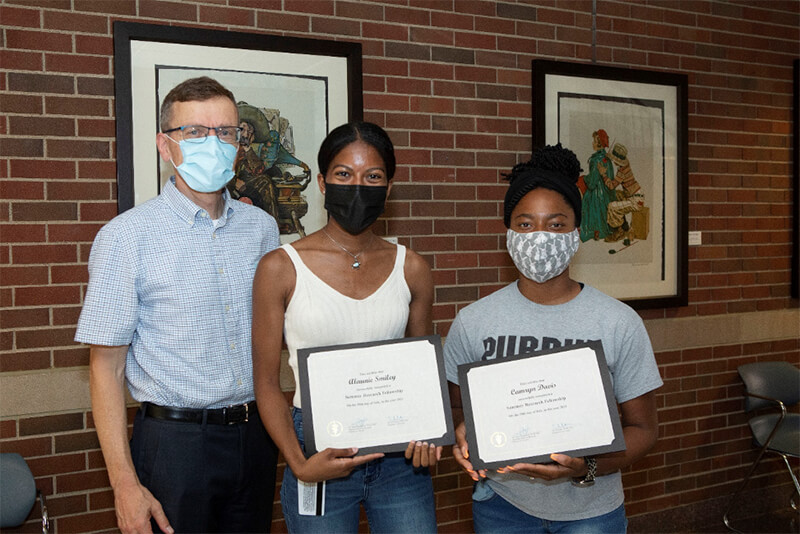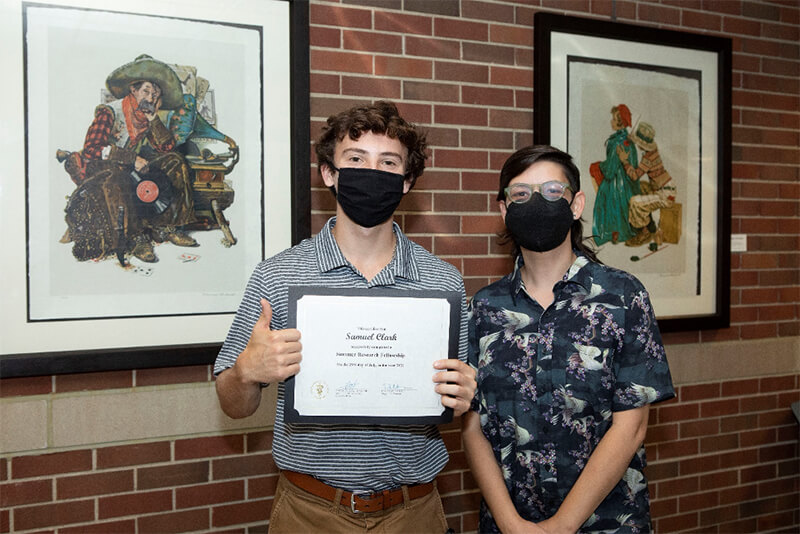Students and their mentors in Purdue Veterinary Medicine’s Veterinary Scholars Summer Research Program gathered for a wrap-up session on Thursday, July 29, to celebrate their accomplishments and receive certificates of recognition. The gathering started outdoors in the Lynn Hall Courtyard then moved inside as a pop-up thunderstorm threatened to throw a damper on the otherwise festive setting. Ice cream novelties also were available in individually wrapped packages to provide a refreshing break from the sultry weather that triggered the storm.
Once inside the stairway area at the main east entrance to Lynn Hall, Dr. Harm HogenEsch, associate dean for research, called out the names of the students in the program and presented them with their certificates of completion. A total of 16 students participated in this year’s Veterinary Scholars Summer Research Program, which is designed to increase the number of veterinarians involved in biomedical and clinical research.

Through the program, veterinary students as well as undergraduate students interested in veterinary medicine are able to explore non-practice careers by engaging in a mentored research project through informal and formal interactions with scientists. Dr. HogenEsch, who also is professor of immunopathology in the Department of Comparative Pathobiology, and Dr. Eli Asem, professor of physiology in the Department of Basic Medical Sciences, organize the program by matching students and faculty. The program includes a weekly seminar series with presentations by faculty on various research-related topics and is sponsored in part by Boehringer Ingelheim Animal Health.
Last year, the program was reduced in size and entirely virtual because of the pandemic. This year the program featured a return to in-person lab work and mentoring, as well as some virtual components that replaced traditional in-person activities. This year’s modifications from the traditional annual program included virtual research poster presentations instead of the customary in-person research poster session typically held in Lynn Hall at the end of July. Additionally, a virtual national symposium replaced the in-person event that normally concludes the program for all of the summer research scholars at veterinary colleges across the country.

The Summer Research Program ran for 11 weeks. This year, nine Purdue veterinary students participated along with seven undergraduate students. Five of the undergraduate students are from Purdue and the other two are from Bethany College and Tougaloo College.
Congratulations to all of the 2021 Summer Veterinary Research Scholars!
